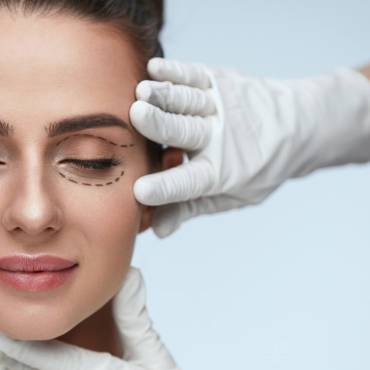Whether you want to get rid of adult acne or are curious to know the latest technique to treat eczema and psoriasis, before opting for any option, choosing the best doctor could be a fruitful decision to treat the skin disease you suffer. Read further to select a suitable doctor to treat skin disease.
Skin is a sensitive yet important part of the body. Our skin plays a crucial role in our overall appearance and aesthetic. A daily skincare routine is crucial to protect and care for the skin. It is usually advised to seek medical help when you first notice a problem; the consulting doctor will limit possible permanent skin damage with prescription medication.
How to address a skin disease?
From hormonal breakouts to dry skin conditions, we all experience skin problems from time to time. However, when a skin disease persists, it can directly impact one’s self-confidence, mental health, and physical health. Studies have linked psoriasis and eczema with depression, and acne can greatly impact a teen’s confidence. Skin diseases can be identified when they cause inflammation, rashes, itchiness, or other skin changes. Skin disease treatment usually includes medications, creams, gels, ointments, lifestyle changes, etc. Some common factors that trigger skin diseases include:
-
- Lifestyle
- Environmental
- Usage of certain medicines
- Usage of certain cosmetics
- Genetically
When to consult a primary care doctor?
No doubt, going to a family doctor is the first step in addressing any persisting skin problems and chronic conditions. Your primary care doctor can handle most of the simple things. Visit your primary care or family doctor to resolve simple skin issues. That is the best place to start. A primary care doctor can treat mild acne, rashes, dandruff, small lesions, athlete’s foot, warts, cysts, and rosacea. If his treatment fails to treat your skin condition, consulting an expert specializing in skin problems is wise. Your family doctor can recommend a suitable skin specialist, but if he doesn’t, you can ask your family or friends for a dermatologist (a skin doctor) to treat your skin issues. You can also use the internet to find the best dermatologist/skin treatment specialist or a dermatology clinic near you.

Dermatologists are medical doctors (also known as skin doctors) specializing in diagnosing and treating skin, hair, nails, and mucus membranes. Some dermatologists who perform critical surgery for patients with skin and hair disorders are known as surgeons. Cosmetic dermatologists recommend skin care treatment with the desired result per regime.
How to choose the right dermatologist?
Visit a reputable dermatologist for skin concerns that need to be addressed. The steps to choose the right dermatology skin care expert are as follows:
-
- Select a board-certified dermatologist after checking his/her credentials.
- Check his/her skill levels and experience.
- Review customers’ feedback and ratings.
- Check chargeable fee.
- Observe clinic infrastructure, hygiene, and technology used.
When to fix a dermatologist appointment?
If the skin condition covers more than 10 percent of your body, it is time to consult a dermatologist, especially if you have muscle pain, difficulty swallowing, insomnia, high fever, and joint aches. Visit the best dermatologist for the right advice and treatment.
Don’t take for granted even the mild appearance of skin disease. Sometimes, a mild skin problem can also indicate a sign of an autoimmune disease such as lupus. Also, it is important to diagnose skin inflammation at the right time so that it can be revealed if there is an inflammation in organs like the liver, lungs, and kidneys. Some skin conditions exclusively treated by dermatologist doctors are atopic dermatitis, rosacea, severe acne, psoriasis, and eczema. Most skin cancers are treated with the help of a dermatologist specialist; sometimes, the procedure requires a surgeon to handle the severe skin complications.
A skin dermatologist can offer a faster diagnosis of a health condition. If you have a severe skin problem, a dermatologist can recognize it immediately and reduce the risk of further damage to organs or other body parts by putting you on medicines. Another benefit of consulting a dermatologist in a timely manner is scar prevention. He will treat the patient with the appropriate medications at the right time so that it doesn’t lead to scarring. It is believed that the longer the problem goes on, the more extensive damage can occur. Before visiting a dermatologist:
-
- Check your insurance plan to see if the particular condition you need treatment for is covered and if the dermatologist also accepts that insurance.
- Know your family medical history.
- Carry a copy of your lab results (if any of them were done recently).
- Do not wear makeup, moisturizers, nail polish, or other skin cosmetics.



